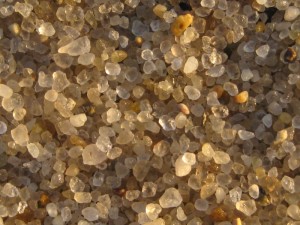Real life mind meld
Michael Balter reports that scientists are honing in on the real-life mechanism that allows two minds to meld during conversation:
Scientists have traditionally considered talking and listening to be two independent processes. The idea is that speech is produced in some parts of the brain, including a region known as Broca's area, and understood in others, including a region known as Wernicke's area. But recent studies suggest that there's actually much more overlap. For example, partners in a conversation will unconsciously begin imitating each other, adopting similar grammatical structures, speaking rates, and even bodily postures. This overlap helps people establish a "common ground" during conversation and may even help them predict what the other is going to say next . . . Some researchers think that so-called mirror neurons, which fire when one individual observes the actions of another, might be involved in these interactions.The scientists conducting the study argue that the experiments they've conducted demonstrate that listeners are active participants to successful conversations.




